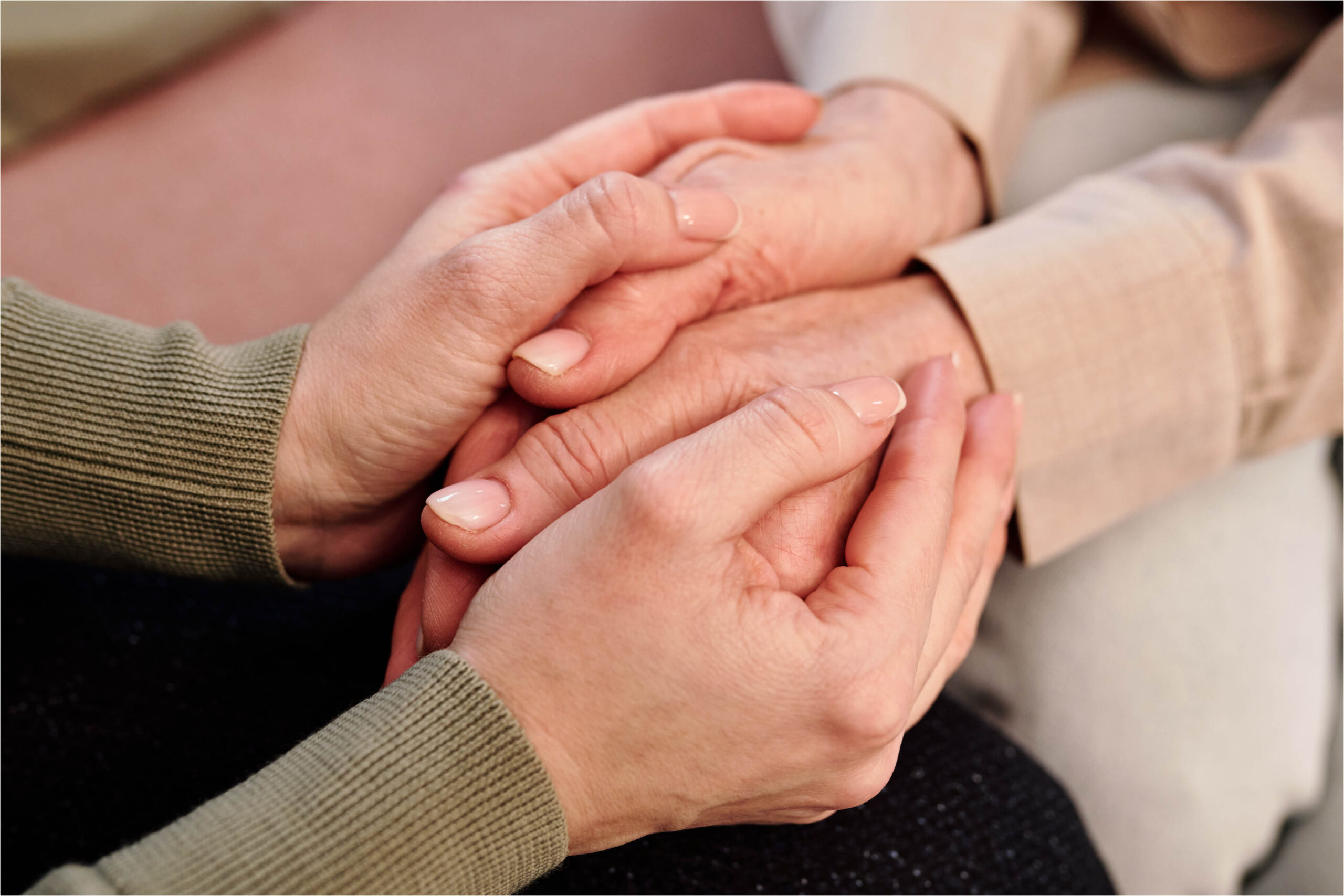Explorez les résultats de recherche web liés à ce domaine.

A study found that coping skills and the ability to adapt to difficult circumstances were linked to a lower risk of death in older adults.
That study began in 1992, and individuals were monitored every two years thereafter, with information collected on their economic, health, marital, and family statuses. For the newly published paper, researchers drew on data from 2006-2008, when questions regarding mental resilience were first introduced.When faced with a challenging circumstance, there are two ways to respond: smile serenely and say, “bring it on,” or throw your hands up and yell, “I can’t cope!” · All right, so maybe a middle ground exists, but unless you’re a zen master, you’ve probably experienced that second reaction at some point in time. Thankfully, taking things in stride is a skill that can be developed and improved — and a new large-scale study is highlighting just how beneficial it is for overall health. · Published in the journal BMJ Mental Health, the research found that being better able to cope with difficult life circumstances was linked to a lower risk of death from all causes in older adults.“Various factors, including but not limited to meaning in life, positive emotions, self-rated health, and satisfaction with social support, have been identified as potential influences on psychological resilience,” the study authors wrote. “Triggering these positive emotions may enhance the protective effects of psychological resilience and mitigate the negative impact of accumulated adversity on mental health in adults.”

Life’s challenges, such as job ... toll on mental health. Resilience helps individuals manage these stressors in a way that minimizes their impact on overall well-being. There are several strategies individuals can use to build resilience and improve their ability to cope with ...
Life’s challenges, such as job stress, financial difficulties, relationship problems, and personal losses, can take a toll on mental health. Resilience helps individuals manage these stressors in a way that minimizes their impact on overall well-being. There are several strategies individuals can use to build resilience and improve their ability to cope with stress:Discover the importance of Mental Health Awareness Month, the impact of stigma, and practical ways to build resilience. Learn how to support mental health awareness, advocate for change, and foster well-being throughout October and beyond.Exercise, in particular, has been shown to reduce symptoms of depression and anxiety and improve overall mood by releasing endorphins—natural chemicals in the brain that promote feelings of well-being. According to a meta-analysis published in The Lancet Psychiatry, individuals who engage in regular physical activity experience fewer days of poor mental health compared to those who are inactive (Chekroud et al., 2018). A key component of maintaining mental health is building resilience—the ability to adapt to adversity and bounce back from difficult experiences.Incorporating self-care practices such as mindfulness, exercise, and time spent with loved ones can help improve your mental well-being. Mental health is an integral part of everyone’s life, and Mental Health Awareness Month serves as a powerful reminder of the importance of raising awareness, challenging stigma, and advocating for better mental health care. By fostering a culture of compassion, understanding, and resilience, we can create a world where mental health is valued as much as physical health and individuals feel empowered to seek help without fear of judgment or discrimination.

Experience a new era in mental health with DMV Psychiatric Wellness. Your path to recovery starts here—explore our services now!
Complementing conventional therapeutic interventions, psychiatric well-being at DMV introduces innovation into practice. This can involve mindfulness techniques, workshops teaching how to handle the stressors of life, and lifestyle coaching-the many ways we can empower our clients to play an active role in the journey of negotiating mental health. We foster resilience through practical means of dealing and coping strategies and thus help improve the quality of our clients’ lives.One of the more unique features of DMV Psychiatric Wellness is our philosophy toward integrated treatment for mental health. We believe that truly effective treatment goes beyond just medication. Though medication may be required for some, we also incorporate psychotherapy and lifestyle changes for them as much as possible in their care. The therapists employ evidence-based skills to help build resilience among the clients, enhancing coping mechanisms and developing healthier thought patterns.DMV psychiatric wellness is the new dawn in a person’s journey into emotional and psychological well-being in a world full of change. We realize the difficulty it may be for so many persons to make their way to mental health services, let alone in the DMV area: the District of Columbia, Maryland, and Virginia.Wellness psychiatry at DMV is done from a holistic point of view, which goes beyond the conventional therapeutic approach. This is very individualistic in nature, wherein therapies are advised, including but not limited to individual therapy, group therapy, and medicine management. This is a modality of approach that realizes that by nature, mental health ailments are quite complex; hence, this understanding and treatment mode will be necessary.
Are you made of tough enough stuff? Learn tips to improve your coping skills.

In the model we tested, we looked ... strategies, and mental well-being. Methods The first study involved 201 juveniles, and the second involved 253 juveniles. Resilience was measured by the Resilience Scale-14. Coping strategies were measured with the Brief-COPE Questionnaire, ...
Background Mental health is an important aspect of the process of individual adaptation and development. The present study analysed the role played by resilience in mental health while taking into account both positive and negative indicators among juveniles.Mental health is an important aspect of the process of individual adaptation and development. The present study analysed the role played by resilience in mental health while taking into account both positive and negative indicators among juveniles. The aim of the first study (Study 1) is to analyse the relationship between resilience and the broadly understood mental health of juveniles admitted to youth education centres.In the model we tested, we looked at the relationship among resilience, coping strategies, and mental well-being. The first study involved 201 juveniles, and the second involved 253 juveniles. Resilience was measured by the Resilience Scale-14. Coping strategies were measured with the Brief-COPE Questionnaire, and information on mental health was obtained using the Kutcher Adolescent Depression Scale, the Satisfaction with Life Scale and the Warwick-Edinburgh Mental Well-being Scale.Researchers consider the identified types of resilience to be an important resource that helps mitigate the risk factors for juveniles and prevent recidivism [86]. Kendziora and Osher focused on factors supporting resilience and the mental health of juveniles in relation to the following aspects: the family environment, local communities, systemic solutions, and the justice system [87]. Resilience correlates with a state of well-being not only directly but also indirectly through its impact on the ability to cope with stress.

The shift from isolation to connection represents a powerful paradigm in addressing mental health challenges. Fostering strong communities and support networks enables us to create environments that nurture mental wellness and resilience.
Isolation can profoundly impact mental health, leading to issues like depression, anxiety, and cognitive decline. Understanding the contributing factors and implementing coping strategies can help individuals and communities mitigate these effects and promote overall well-being.Community health centers are vital for combating isolation and promoting mental wellness, especially for underserved populations. They offer accessible healthcare, including mental health support, and often serve as the first contact for those experiencing loneliness or mental health issues.Programs like group therapy, social activities, and community events help reduce the stigma around seeking mental health care and encourage individuals to prioritize their well-being.It’s common for those who feel socially isolated to face mental health challenges, but it has physical health consequences, too. Isolation can be as harmful to our health as smoking 15 cigarettes a day, according to the US Surgeon General. The rise of digital communication has paradoxically left many people feeling more isolated than ever.
The definition highlights; “Health ... intellectual and emotional potential. It has also been defined as a state of well-being whereby individuals recognize their abilities, are able to cope with the normal ......
The definition highlights; “Health is a state of complete physical, mental and social well-being and not merely the absence of disease or infirmity.” Concepts of mental health include subjective well-being, perceived self-efficacy, autonomy, competence, and recognition of the ability to realize one's intellectual and emotional potential. It has also been defined as a state of well-being whereby individuals recognize their abilities, are able to cope with the normal stresses of life, work productively and fruitfully, and make a contribution to their communities.Resilience is often discussed as that aspect of mental health and coping which is paramount to the ability to spring back during adverse circumstances. The mention of positive health necessarily recounts on the ability to withstand and cope with stress adaptively.It is noted that healthier lifestyles, better physical health, higher educational attainment, greater productivity, employment, and earnings are affected by positive mental health or “well-being.”[11] There is enough evidence on the psychological aspects and attributes of resilience.Mental health is about enhancing competencies of individuals and communities and enabling them to achieve their self-determined goals.[1] A growing body of cross-cultural evidence indicates that various psychological, social and behavioral factors can protect health and support positive mental health. Such protection facilitates resistance (resilience) to disease, minimizes and delays the emergence of disabilities, and promotes more rapid recovery from illness.[2]
To address the nuances underlining ... threat/challenge). This dichotomy is intended to facilitate cognitive behavioral therapy, as well as translational research on stress and mental resilience....
To address the nuances underlining stress severity, we propose to update a dichotomy in the cognitive appraisal terminology—self-appraisal (i.e., the perception of self-efficacy to deal with the stressor) and stressor-appraisal (the perception of threat/challenge). This dichotomy is intended to facilitate cognitive behavioral therapy, as well as translational research on stress and mental resilience.Aversive events can evoke strong emotions that trigger cerebral neuroactivity to facilitate behavioral and cognitive shifts to secure physiological stability. However, upon intense and/or chronic exposure to such events, the neural coping processes can be maladaptive and disrupt mental well-being.Our hypotheses need to be tested to further clarify the various interfering factors with stress reactivity and resilience, such as sex hormones and genetic polymorphism related to serotonin and dopamine signaling reviewed above, as well as stressor type and stress timing/continuity (single, repeated intermittent, or chronic) that can involve different neural pathways and different reactivity of the HPA axis and LC-NE system.This maladaptation denotes a pivotal point when psychological stress occurs, which can trigger subconscious, “automatic” neuroreactivity as a defence mechanism to protect the individual from potential danger including overwhelming unpleasant feelings and disturbing or threatening thoughts.The outcomes of maladaptive neural activity are cognitive dysfunctions such as altered memory, decision making, and behavior that impose a risk for mental disorders. Although the neurocognitive phenomena associated with psychological stress are well documented, the complex neural activity and pathways related to stressor detection and stress coping have not been outlined in detail.

By embracing positive psychology ... build resilience and face life’s challenges with confidence. Family dynamics are very important for teen mental health. A study with 417 teens aged 13-20 showed that family environment affects how they cope and their mental health. Let’s look at how talking to teens, having a supportive home, and setting healthy boundaries help their well-be...
By embracing positive psychology and stress management, teens can build resilience and face life’s challenges with confidence. Family dynamics are very important for teen mental health. A study with 417 teens aged 13-20 showed that family environment affects how they cope and their mental health. Let’s look at how talking to teens, having a supportive home, and setting healthy boundaries help their well-being.The cost of late intervention for youth mental health issues is £17 billion. Mental health professionals are key in teaching teens to cope. They teach strategies that improve life satisfaction and mental well-being. The stronger a teen’s resilience, the happier they are with life.I’ve learned that asking open-ended questions and listening well can help a lot. When parents accept their teens’ feelings, it makes a safe place for talking. This is very important because 20% of teens aged 12-17 face mental health issues. ... A supportive home helps teens cope better.Discover effective ways to build resilience and coping strategies in adolescents. I share expert insights to help teens navigate stress and develop emotional strength

Treating all adversity as inherently negative does a disservice to children and their ability to develop adaptive coping mechanisms that can protect them in future cases of adversity.
However, it is also well documented that not all forms of adversity are inherently “bad” for children. As researchers in health promotion with a particular interest in the resilience of equity-deserving populations, we notice that the overwhelming narrative around childhood adversity is that it should be avoided.It’s important to note the distinction between child adversity in general and specific circumstances known as Adverse Childhood Experiences (ACEs). Childhood adversity in general is a broad term that captures a wide array of circumstances or events that may pose threats to a child’s physical or psychological well-being.Research shows that many lessons can be learned from losing. By helping children to shift the framing of their loss from failure to an opportunity for growth, children can begin to develop a growth mindset. This can not only support their resilience, but also their teamwork and interpersonal skills.In a systematic review on the resilience of children and their caregivers conducted by our team, a major theme that emerged was that the COVID-19 pandemic created the “perfect storm” for negative socioeconomic impacts among families.

This shows how vital resilience coping mechanisms are. I’ve seen how mental toughness training can change lives, helping people overcome challenges with newfound strength. Exploring resilience, I learned it’s not about avoiding problems. It’s about learning to handle them well.
My research and personal experiences show small, achievable wellness changes can make a big difference. It’s not about sudden, big changes. It’s about building habits that make our minds stronger over time. Things like nutrition, sleep, hydration, and exercise are all important for resilience. As we dive into this topic, I’ll share practical tips and insights for building your resilience. Remember, mental strength is a journey, not a finish line.It is to be useful, to be honorable, to be compassionate, to have it make some difference that you have lived and lived well.” – Ralph Waldo Emerson · Here’s a quick guide to boost your professional resilience: ... Remember, growing professionally and living with purpose are ongoing journeys. By focusing on these areas, we can build resilience and find fulfillment in our careers. I’ve found some top-notch coping mechanisms to boost your mental strength.Setting clear boundaries is also key, with 70% of founders agreeing. This means saying no, keeping work and personal life separate, and finding time for self-care. Remember, resilience is about thriving, not just enduring. Celebrating small wins boosts mental well-being for 80% of founders.Building resilience is key to handling life’s ups and downs. Let’s look at some important coping strategies. They help boost mental strength and wellbeing.
Spend time in nature. This can help to reduce stress and improve wellbeing. You could try going for a walk in a green space, taking care of indoor plants, or spending time with animals. Our nature and mental health pages have more information.
Browse our online range including our range of mental health resources, wedding favours, Pause for Mind and greetings cards. ... Explains what stress is, what might cause it and how it can affect you. Includes information about ways you can help yourself and how to get support. ... Being prepared for periods of stress can make it easier to get through them. And knowing how to manage our wellbeing can help us recover after a stressful event.Spend time in nature. This can help to reduce stress and improve wellbeing. You could try going for a walk in a green space, taking care of indoor plants, or spending time with animals. Our nature and mental health pages have more information.Below are some tips you could try to help you manage stress and build your resilience. Trying these ideas won't make all the stress in your life disappear. But they could make it easier to get through stressful situations. Taking care of your wellbeing can help you feel more able to manage stress.See our pages on wellbeing for more tips to support yourself. My advice would be if you’re feeling stressed, be kind to yourself, everything starts with you. Research shows that having a good support network can help to build resilience and make stress easier to manage.


Discover how protective factors within a child’s developmental environment can help build essential skills to help children cope with adversity and foster lifelong well-being. ... Building young children’s capacity for resilience, thereby reducing the effects of significant adversity or ...
Discover how protective factors within a child’s developmental environment can help build essential skills to help children cope with adversity and foster lifelong well-being. ... Building young children’s capacity for resilience, thereby reducing the effects of significant adversity or toxic stress on early development, is essential to their lifelong health and well-being.Indeed, learning to cope with manageable threats—or positive stress—is critical for developing resilience. The capabilities that underlie resilience can be strengthened at any age, underscoring the need for supportive policies and programs. Explore the resources in this guide and our guide to toxic stress to learn more.
It’s not about sudden, big changes. It’s about building habits that make our minds stronger over time. Things like nutrition, sleep, hydration, and exercise are all important for resilience. As we dive into this topic, I’ll share practical tips and insights for building your resilience.
My research and personal experiences show small, achievable wellness changes can make a big difference. It’s not about sudden, big changes. It’s about building habits that make our minds stronger over time. Things like nutrition, sleep, hydration, and exercise are all important for resilience. As we dive into this topic, I’ll share practical tips and insights for building your resilience. Remember, mental strength is a journey, not a finish line.It is to be useful, to be honorable, to be compassionate, to have it make some difference that you have lived and lived well.” – Ralph Waldo Emerson · Here’s a quick guide to boost your professional resilience: ... Remember, growing professionally and living with purpose are ongoing journeys. By focusing on these areas, we can build resilience and find fulfillment in our careers. I’ve found some top-notch coping mechanisms to boost your mental strength.Setting clear boundaries is also key, with 70% of founders agreeing. This means saying no, keeping work and personal life separate, and finding time for self-care. Remember, resilience is about thriving, not just enduring. Celebrating small wins boosts mental well-being for 80% of founders.Building resilience is key to handling life’s ups and downs. Let’s look at some important coping strategies. They help boost mental strength and wellbeing.

Mental wellness is the ability to manage, cope, and persevere in the face of success or struggle. It is the ability to shift and adapt to success or struggle while maintaining a level of balance in our brain and body. It is about pursuing and engaging in behaviours and activities that you enjoy ...
Or maybe, you feel as though your experience isn’t necessarily that critical and you’re able to cope and manage well enough day to day. Below I’ll discuss what mental wellness is, the mental health spectrum or continuum, and tips and tools on how you can support your own mental health and build mental resilience.It’s so important to have perspective on that, knowing that things CAN shift for the better when we have some knowledge and tools to cope. I have personally struggled with varying degrees and levels of anxiety since I was a teenager. It’s impacted me in a number of ways, and I’ve learned a wealth of knowledge throughout my experiences, building my resilience toolbox more and more. I’ve learned how I can best support myself, including when to ask for help, which are incredibly empowering and invaluable skills. Building mental resilience to support your mental wellness isn’t about ignoring the issues or pretending like they do not exist.Explore the spectrum of mental wellness, understand its nuances, and discover tools to build resilience and maintain balance.Mental wellness is the ability to manage, cope, and persevere in the face of success or struggle. It is the ability to shift and adapt to success or struggle while maintaining a level of balance in our brain and body. It is about pursuing and engaging in behaviours and activities that you enjoy and create a generally positive life. When we are mentally well, we are able to appropriately respond to life’s stressors.

Researchers define psychological resilience as the ability to cope with or adapt to uncertainty, challenges, and adversity. It is sometimes referred to as “mental fortitude.”
Researchers define psychological resilience as the ability to cope with or adapt to uncertainty, challenges, and adversity. It is sometimes referred to as “mental fortitude.”Resilience means having the mental, emotional, and behavioral flexibility and ability to adjust to both internal and external demands. “It’s your ability to withstand adversity and bounce back and grow despite life’s downturns,” says Amit Sood, MD, the executive director of the Global Center for Resiliency and Well-Being and the creator of the Resilient Option program.Researchers went as far as saying that resilience was an important factor in fighting mental health conditions, and suggest that strengthening resilience could be an excellent large-scale method of preventing mental health disorders. ... Kids confront any number of challenges as they grow — from starting school and making new friends to adverse, traumatic experiences, such as bullying and abuse. Cultivating resilience from a young age — the ability to adapt well to adversity, trauma, tragedy, threats, and even sources of everyday stress at school or work — can help children manage stress and feelings of anxiety and uncertainty, according to the APA.Psychological Resilience, Mental Health, and Inhibitory Control Among Youth and Young Adults Under Stress. Frontiers in Psychiatry. January 2021. Emotional Resilience. The Children's Society. Whitson HE et al. Physical Resilience in Older Adults: Systematic Review and Development of an Emerging Construct. The Journals of Gerentology . April 2016. Lacomba-Trejo L et al. Are Coping Strategies, Emotional Abilities, and Resilience Predictors of Well-Being?


Improve both your health and wellness at Prime Behavioral Health. Call 817-778-8884 for psychiatric care, TMS therapy, and holistic mental health services.
According to the World Health Organization (WHO), health is defined as a state of complete physical, mental, and social well-being, not merely the absence of disease or infirmity. When applied to mental health, this means that being mentally healthy is more than just not having a mental illness—it involves thriving in your daily life, feeling emotionally balanced, and having the cognitive resilience to handle challenges.Wellness involves a proactive approach. At Prime Behavioral Health, we understand that wellness requires more than managing mental health symptoms. It means helping individuals cultivate coping mechanisms, improve resilience, and create sustainable habits that contribute to long-term well-being.In psychiatric care, addressing wellness can mean helping patients not only overcome the symptoms of conditions like anxiety or depression but also developing a positive outlook on life, achieving personal goals, and strengthening emotional resilience. Wellness is ongoing, requiring continual self-reflection and adjustments to daily routines to maintain a sense of balance. Health is the Foundation; Wellness is the Enhancement: Health focuses on diagnosing and treating symptoms, while wellness is about living a balanced, fulfilled life. For example, mental health treatment may involve medication to reduce anxiety symptoms, while wellness would involve learning techniques like deep breathing or yoga to manage stress before it escalates.For example, regular therapy sessions and medication management can help patients with depression feel stable and symptom-free (health), while engaging in daily mindfulness or exercise can improve emotional resilience (wellness). At Prime Behavioral Health, we integrate these concepts to offer a comprehensive approach to mental care.

These strategies help us deal with tough times and improve our overall well-being. In this article, I’ll share practical ways to build resilience for your everyday life. We’ll look at mindfulness, physical health tips, and more to strengthen your mental strength.
By focusing on these social support strategies, I’ve seen a big improvement in handling stress and setbacks. Remember, building resilience is a journey, and we’re not meant to do it alone. Taking care of my body is crucial for mental toughness. Physical wellness is the base for emotional resilience.Quality sleep is vital for emotional resilience. I’ve found that good sleep helps me deal with stress better. A regular bedtime routine and a comfy sleep space are key to my well-being. What I eat affects my stress management. Eating whole foods, fruits, veggies, and omega-3s lowers depression and anxiety risks. Nutritious food prepares me to face challenges and stay emotionally stable. “A balanced lifestyle, focusing on physical, mental, and emotional well-being, is necessary to achieve holistic health and resilience.”Adding these physical wellness habits to my daily life has boosted my emotional resilience. Small changes can make a big difference in mental toughness and stress management.Discover practical coping strategies to build resilience that I've learned through experience. Learn how to bounce back from challenges and create lasting mental strength
People who are emotionally well, experts say, have fewer negative emotions and are able to bounce back from difficulties faster. This quality is called resilience. Learning healthy ways to cope and how to draw from resources in your community can help you build resilience. ... Develop healthy physical habits. Healthy eating, physical activity, and regular sleep can improve your physical and mental ...
People who are emotionally well, experts say, have fewer negative emotions and are able to bounce back from difficulties faster. This quality is called resilience. Learning healthy ways to cope and how to draw from resources in your community can help you build resilience. ... Develop healthy physical habits. Healthy eating, physical activity, and regular sleep can improve your physical and mental health.Find out how to successfully handle life’s stresses and adapt to change and difficult times.Seek help. Talk to a mental health professional if you feel unable to cope, have suicidal thoughts, or use drugs or alcohol to cope. ... To fit in everything we want to do in our day, we often sacrifice sleep. But sleep affects both mental and physical health. It’s vital to your well-being.Stress can give you a rush of energy when it’s needed most. But if stress lasts a long time—a condition known as chronic stress—those “high-alert” changes become harmful rather than helpful. Learning healthy ways to cope with stress can also boost your resilience.
Thankfully, taking things in stride ... the journal BMJ Mental Health, the research found that being better able to cope with difficult life circumstances was linked to a lower risk of death from all causes in older adults....
That study began in 1992, and individuals were monitored every two years thereafter, with information collected on their economic, health, marital, and family statuses. For the newly published paper, researchers drew on data from 2006-2008, when questions regarding mental resilience were first introduced.When faced with a challenging circumstance, there are two ways to respond: smile serenely and say, “bring it on,” or throw your hands up and yell, “I can’t cope!” · All right, so maybe a middle ground exists, but unless you’re a zen master, you’ve probably experienced that second reaction at some point in time. Thankfully, taking things in stride is a skill that can be developed and improved — and a new large-scale study is highlighting just how beneficial it is for overall health. · Published in the journal BMJ Mental Health, the research found that being better able to cope with difficult life circumstances was linked to a lower risk of death from all causes in older adults.“Various factors, including but not limited to meaning in life, positive emotions, self-rated health, and satisfaction with social support, have been identified as potential influences on psychological resilience,” the study authors wrote. “Triggering these positive emotions may enhance the protective effects of psychological resilience and mitigate the negative impact of accumulated adversity on mental health in adults.”









